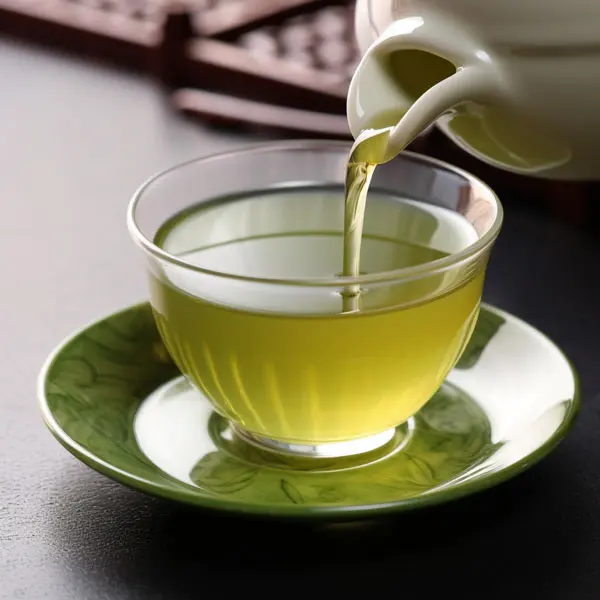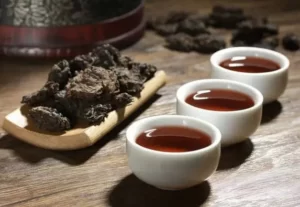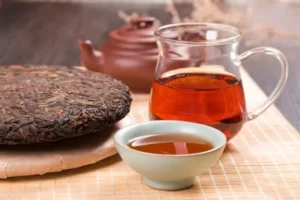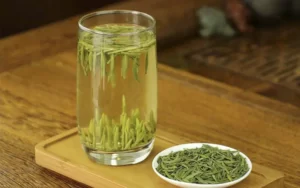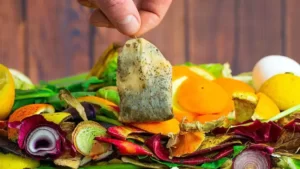“Are tea bags compostable?” This simple yet relevant question resonates with many of us trying to lead a sustainable lifestyle. The answer is both yes and no. It largely depends on the brand and the materials used. Dive in with me as we unravel the story behind your beloved tea bags and their journey to compostability.
Benefits of Tea Compost?
Tea, in its raw form, is a blessing for your garden. Both tea leaves and bags, when processed appropriately, can enhance soil fertility. This is because tea is rich in nitrogen, a primary nutrient that plants crave, making the soil healthier and more nutritious.
Moreover, adding tea bags or residues to your compost can work wonders for soil structure. These components decrease soil acidity, making the environment more conducive for plant growth, and improve the soil’s drainage capacity, preventing water stagnation.
However, a word of caution: tossing these tea components directly into your potted plants can be counterproductive. They act as raw fertilizer and, if not fermented properly, can burn plant roots. The recommended route? Convert your tea bags into compost. After enjoying your black, mint, herbal, or Pu’er tea, dry the bags, extract the leaves, and add them to your compost pile. Bonus point? Tea residues have pest-repelling properties. A tea-infused solution, prepared by soaking bags and residues overnight and filtering, can be sprayed on plants to deter pests and prevent fungal infections.
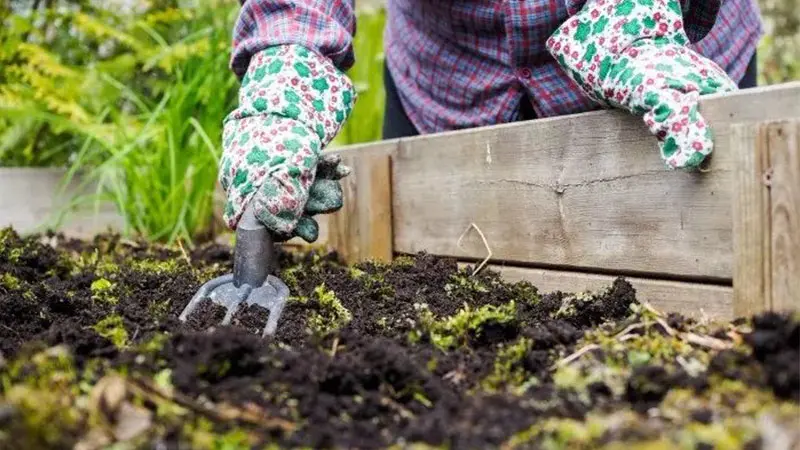
Can Tea Bags Be Composted?
Modern-day tea bags come in a mix of materials. While some are entirely biodegradable, others contain non-compostable elements. The challenge is discerning the difference.
Mainstream tea bags often incorporate paper fiber blended with plastic sealants to provide strength. The downside? While they may seem compostable, they leave behind microplastics once they disintegrate, contaminating the soil and posing a threat to marine life when they find their way into waterways.
Tea bags containing plastic not only pollute the land, but are also a big problem if they melt into the tea and are absorbed by the body. So I suggest you’d better buy plastic-free tea bags. Here are some of the eco-friendly tea bags:
- Abaca Hemp: Derived from a banana plant species, abaca hemp fibers are durable, yet biodegradable, making them a popular choice for sustainable tea bags.
- Cotton Muslin: Used mainly for high-quality tea brands, cotton muslin bags are entirely organic and compostable.
- Silk: Although less common due to cost, some premium tea bags are crafted from silk, which is natural and biodegradable.
- Soilon: A new player in the tea bag arena, Soilon is derived from corn starch. It looks similar to plastic but decomposes under composting conditions.
- Paper: Some brands opt for paper tea bags without synthetic additives or plastic sealants. This material is compost-friendly, breaking down naturally over time.
How to determine the composition of your tea bag? The texture can be a giveaway. Fully biodegradable tea bags have a somewhat rough, cloth-like feel, while those with plastic tend to be smoother.
But the bag material isn’t the only concern. Some tea bags come with staples, tags, or strings, which may not degrade and should be removed before composting.
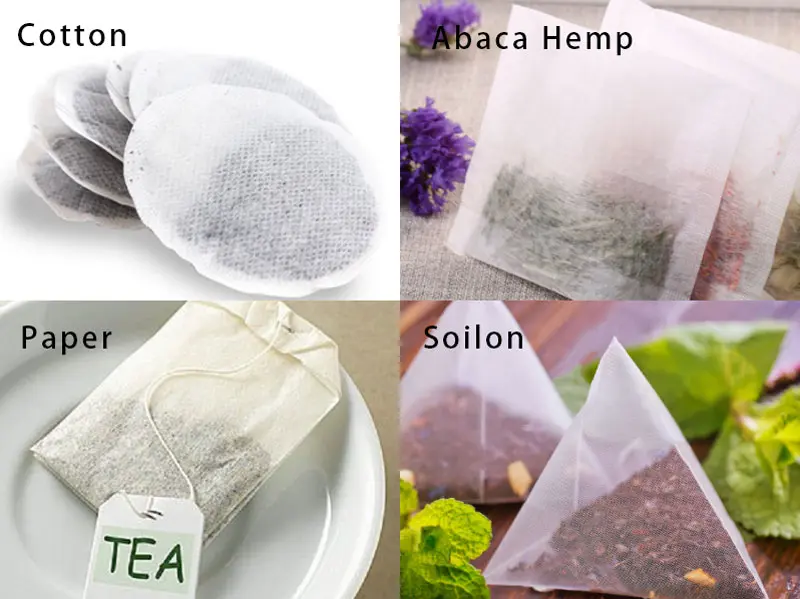
How to Compost Tea Bags and Leaves?
Step1:Ensure Biodegradability: Before composting tea bags, ensure that they are made from natural materials like paper, hemp, or silk. Some tea bags contain synthetic fibers or plastics which won’t break down. If you’re unsure about the composition, tear a small section of the bag; if it feels plasticky, it might be best to toss it or remove the tea leaves and compost only the leaves.
Step2:Remove Staples and Tags: If your tea bags have metal staples or tags, it’s a good idea to remove them before composting. While these items will eventually break down, they can take a long time and might not be suitable for all compost systems.
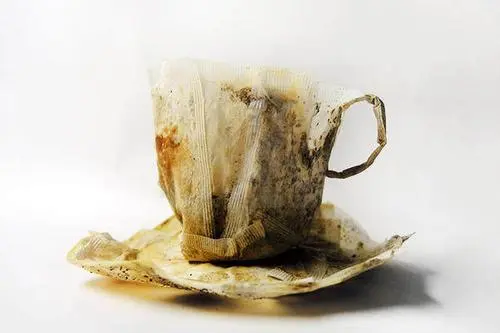
Step3:Chop or Tear: Tear the bags open or chop them up to speed up the decomposition process. This exposes more surface area for microbes to work on.
Step4:Mix with Browns and Greens: For optimal composting, you want a good mix of greens (nitrogen-rich materials) and browns (carbon-rich materials). Tea leaves are considered green materials, so balance them out by adding browns like dry leaves, paper, or straw.
Step5:Layering: Add your tea bags and leaves in layers in your compost pile or bin, alternating with other organic waste. This ensures a good mix of materials, helping with aeration and decomposition.
Step6:Turn Your Compost: Regularly turn your compost to provide it with oxygen, which aids the decomposition process and prevents the pile from becoming anaerobic.
Step7:Monitor Moisture: Ensure that your compost remains as moist as a wrung-out sponge. If it gets too dry, microbial activity will slow down; if it’s too wet, it can become anaerobic and smelly. Add water or dry materials as needed to maintain the right moisture level.
Step8:Be Patient: Depending on the conditions and the materials you’ve added, compost can take anywhere from a few months to over a year to fully mature.
Step9:Finished Compost: Once the tea bags, leaves, and other organic materials have broken down into a dark, crumbly, soil-like substance, your compost is ready to use. Add it to your garden or potting mix to enrich the soil and support plant growth.
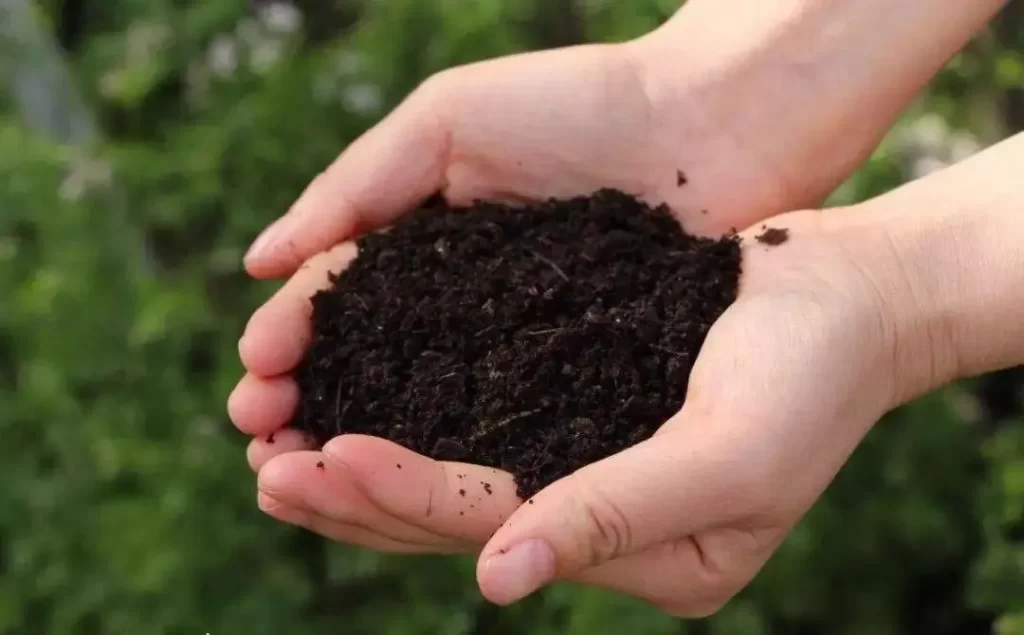
Lastly, if you drink a lot of tea, consider purchasing loose leaf tea. Not only is it often fresher, but it also reduces waste from tea bags. Loose leaves can be composted directly after steeping.
Some Brands of Biodegradable Tea Bags
Many tea brands have been making efforts to switch to more sustainable and biodegradable tea bags in response to consumer demand and environmental concerns. Here are several brands known for offering biodegradable or compostable tea bags:
Numi Organic Tea: Numi uses a natural hemp-based, non-GMO tea bag. It’s biodegradable and free of plastics.
Traditional Medicinals: They use a natural abaca (type of banana plant) pulp tea bag, which is unbleached and biodegradable.
Republic of Tea: Their tea bags are made from unbleached, natural fibers that are biodegradable.
Stash Tea: The company transitioned to a compostable tea bag material made from 100% cellulose fibers (plant-based).
Mighty Leaf Tea: Their tea pouches are made from a corn-derived biodegradable material.
Choice Organic Teas: This brand uses unbleached, natural fiber, staple-free tea bags.
Davidson’s Organics: Their tea bags are made from a biodegradable, non-GMO corn silk.
Rishi Tea: Offers loose teas, but their sachets are made from plant-based materials, making them compostable.
It’s essential, however, to check the packaging or the company’s website for the most current information on their tea bags’ compostability. Manufacturers can change their materials, and new innovations in packaging are continually being developed.
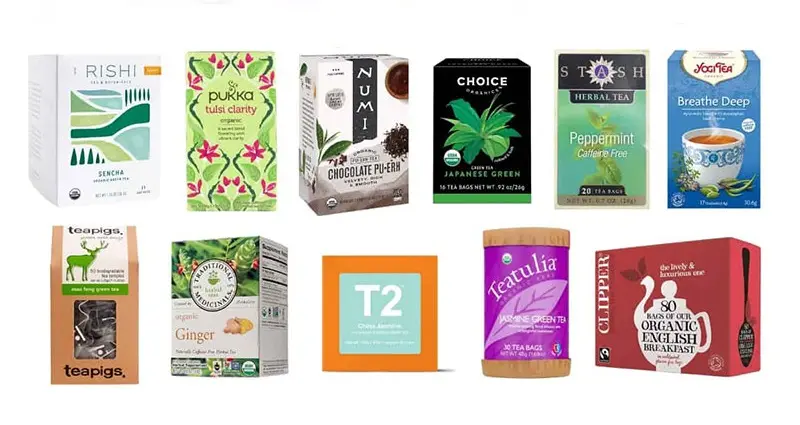
Conclusion
Tea bags can often be composted, but their compostability largely depends on their material composition. While many tea bags are made primarily of paper, some contain plastic fibers to increase durability, which prevents them from fully decomposing in a compost pile. Additional elements like metallic staples or synthetic labels should also be removed prior to composting. To determine a tea bag’s compostability, consumers can conduct a burn test: fully organic bags will turn to ash, while those with plastic will leave a residue. It’s crucial to be aware of these factors and choose more environmentally-friendly tea bag options when aiming for composting.
FAQ
Question1: Are Lipton tea bags compostable?
Lipton’s pyramid tea bags are made from a plant-based material derived from corn starch, making them compostable. However, their regular tea bags might include a small amount of plastic to seal the bags, which can make them less suitable for home composting. Always check the packaging or the company’s website for the latest information on compostability.
Question2: Are Bigelow tea bags compostable?
Bigelow has indicated in the past that their tea bags are made primarily of paper and are compostable. However, as with many commercial tea bags, there might be a small amount of plastic used in the process, which could affect compostability. It’s advisable to check their current packaging or website for the most updated information.
Question3: Are Tazo tea bags compostable?
Tazo, a brand owned by Unilever (the same parent company as Lipton), has been transitioning to more sustainable practices. Some of their tea bags are compostable, but as with other brands, the compostability might vary based on the type of tea bag (e.g., pyramid vs. regular). Again, refer to the product’s packaging or Tazo’s official website for the most accurate information.
Question4: Are Yogi tea bags compostable?
Yogi teas use a compostable tea bag made of a combination of wood pulp and abaca (a type of banana plant). The strings are made of cotton, and the bags are heat-sealed, meaning they don’t use metal staples. This makes them suitable for composting, but always verify with the latest information provided by the company.
Question5: Are Celestial Seasonings tea bags compostable?
Celestial Seasonings is known for their unique approach. their tea bags do not have strings, tags, or staples.Still, it’s always a good practice to check the current product packaging or the company’s official website to confirm compostability.
